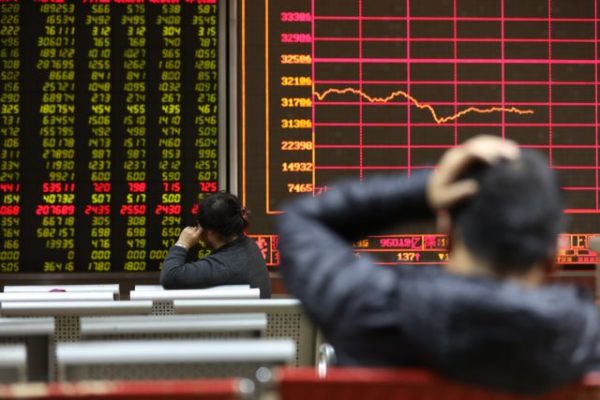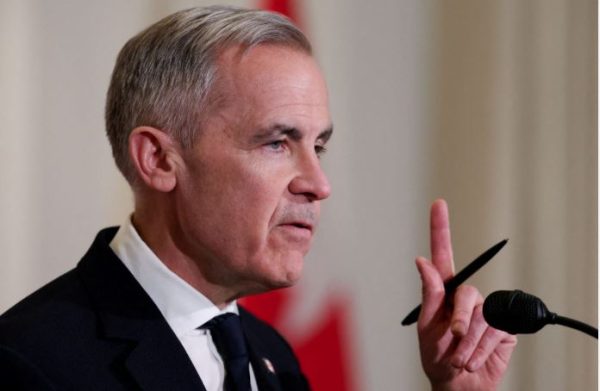
Inflation in Greece was 5.4% in March 2023 (from 6.5% in February), while 6.9% is the corresponding rate at the Eurozone level, according to Eurostat’s preliminary data.
Eurozone annual inflation eased from 8.5% in February, according to Eurostat’s estimate. In February, consumer prices had increased by 6.5% in our country, according to Eurostat, and by 6.1% according to ELSTAT. At the same time, today’s Eurostat figures show a rise in monthly inflation of 1.6%, as recorded in the table below, which shows that product accuracy remains.
The slowdown is almost entirely due to the drop in energy prices compared to March last year, which preceded Russia’s invasion of Ukraine.
However, the index excluding energy and food prices (structural inflation) accelerated slightly to 7.5% from 7.4% in February.
Looking at the main components of euro area inflation, food, alcohol and tobacco are expected to have the highest annual rate in March (15.4%, up from 15.0% in February), followed by non-energy industrial goods (6.6%, vs. 6.8% in February), services (5.0%, vs. 4.8% in February) and energy (-0.9%, vs. 13.7% in February) .
The forecasts of the Ministry of Finance
The forecasts of the Ministry of Finance prescribe a slowdown in inflation, that is, prices will increase at a reduced rate for the whole year and the general index will be formed at the end of 2023 around 4.5%. According to the winter forecasts of the European Commission (February 2023), the average annual inflation for the entire year 2023 is predicted at 4.5% (5.6% in the Eurozone) and for 2024 at 2.4% (2.5 % in the Eurozone).
The financial staff report that we will not see a reduction in prices, but that prices will increase at a reduced rate, which was officially supported by the Minister of Finance Christos Staikouras, which implies that the accuracy will continue in the coming years months.
The Budget Office of the Parliament also sounded the “bell” about inflation, which states the following: “Inflation shrinks the real income of a large part of households, especially the most vulnerable, resulting in an increase in social inequality and social tensions. The problem is mainly found in food prices which, despite the relative de-escalation of the general inflation index, show a high growth rate. In addition, the pressure on vulnerable households and businesses is intensified by the increase in interest rates that burdens their debt servicing.”
Dropping standard of living
The result of the high prices is the decline in the standard of living of the citizens. For example, in September 2022 the poorest households would have to increase their consumption to 171% of their disposable income in order to maintain the standard of living they had in 2021. According to the study published in the framework of the Eteron – Institute project for Research and Social Change, for Economic Justice, 1/4 of this extra consumption was subsidized by the government, which means that, taking into account countervailing measures, this income group was actually burdened by the steep rise in prices by 13%.
Inflation last month, on an annual basis, slowed to 6.5% from 7.3% in January, while on a monthly basis, it registered an increase of 0.2%. Based on Hellenic Statistical Authority-ELSTAT’s data, consumer prices in Greece ran at a rate of 6.1% in February. The annual increase stems mainly from food and non-alcoholic beverages (increase in the price level by 14.5%), hotels-cafes-restaurants (7.8%) and transport (7.9%). They are followed by the categories of durable goods, household goods and services (10.2%), clothing and footwear (6.8%), other goods and services (5.7%), health (5.3%), leisure and cultural activities (3.6%), education (2.2%) and alcoholic beverages and tobacco (1.8%).
New price increases are coming, while consumption is dropping.
At the same time, 7 out of 10 industry and retail executives say they have decided to go ahead with another round of price increases this year, according to data presented by NielsenIQ CEO Vaios Dimoragas at the company’s event today Nielsen – Shopper Trends Event 2023.
Particularly, from a sample of 32 managers from organized retail and industrial companies, it appears that 68% answered that there will be further price increases this year.
According to the survey, the new price increases will move up to 5% according to 35% of the respondents, while 1 in 2 answered that the price increases will reach up to 10%. There is also a small percentage of 6% who answered that price increases will reach 20%.
What is striking is that the price increases will take place when consumers, exhausted by rising prices, reduce the purchases of even basic food, as well as basic consumables.
In particular, 50% of respondents predict a decrease in consumption due to inflation and price hikes, however 40% expect stability in sales volume at -1 to +1%.
Latest News

Τι όνειρο είδε ο Τραμπ, έχασε 5,7 δισ. το ΧΑ σε 4 ημέρες, το «16άρι» της Coca Cola, αλλάζει η Δυτ. Μακεδονία, ζωντανεύει το Ξενία Ουρανούπολης, το βιομεθάνιο της ΔΕΠΑ Εμπορίας
Τι όνειρο είδε...

Trump Tariffs Jeopardize Growth: Piraeus Chamber of Commerce
The tariffs, aimed at reducing the U.S. trade deficit, are expected to have both direct and indirect effects on the European economy

EU Condemns Trump Tariffs, Prepares to Retaliate
As tensions escalate, the EU is expected to continue negotiations with Washington while preparing for potential economic retaliation.

The Likely Impact of Trump Tariffs on Europe and Greece
Trump tariffs are expected to negatively affect economic growth in the Eurozone while Greece's exports could take a hit.

Motor Oil Results for 2024: Adjusted EBITDA of 995 mln€; Proposed Dividend of 1.4€ Per Share
Adjusted EBITDA for 2024 was down 33% yoy. The adjusted profit after tax for 2024 stood at 504 million euros, a 43% decrease from the previous year

Cost of Living: Why Greece’s 3% Inflation Is Raising Alarm
Greece appears to be in a more difficult position when it comes to price hikes, just as we enter the era of Trump’s tariffs.

Fitch Ratings Upgrades the Four Greek Systemic Banks
NBG’s upgrade reflects the bank’s ongoing improvements in its credit profile, Fitch notes in its report, including strong profitability, a reduction in non-performing exposures (NPEs), and lower credit losses

Trump to Announce Sweeping New Tariffs Wednesday, Global Retaliation Expected
With Trump's announcement just hours away, markets, businesses, and foreign governments are bracing for the fallout of one of the most aggressive shifts in U.S. trade policy in decades.

Inflation in Greece at 3.1% in March, Eurostat Reports
Average inflation in the eurozone settled at 2.2%, compared to 2.3% in February

Greece’s Unemployment Rate Drops to 8.6% in February
Despite the overall decline, unemployment remains higher among women and young people.
























![ΕΛΣΤΑΤ: Αυξήθηκε η οικοδομική δραστηριότητα κατά 15,6% το Δεκέμβριο [πίνακες]](https://www.ot.gr/wp-content/uploads/2025/03/DSC9655-2-1024x569-1-90x90.jpg)
















 Αριθμός Πιστοποίησης
Αριθμός Πιστοποίησης